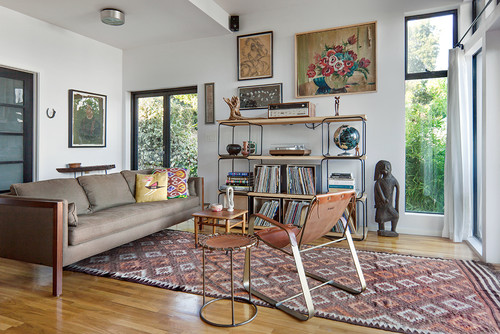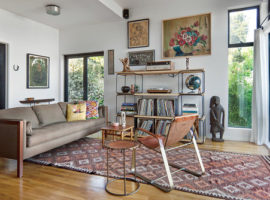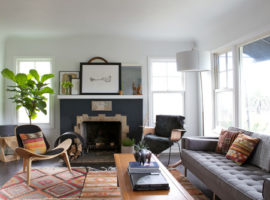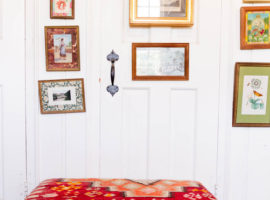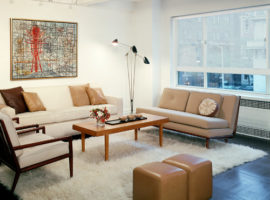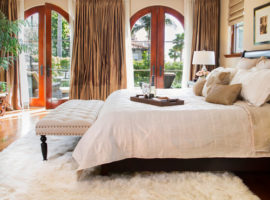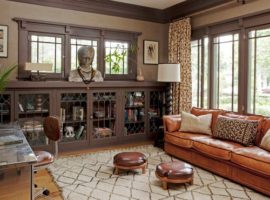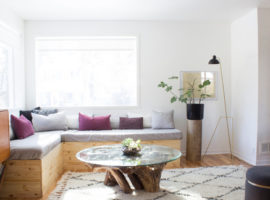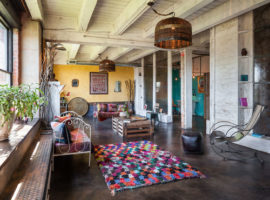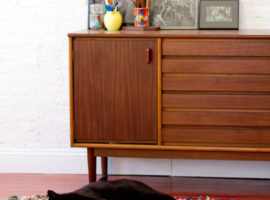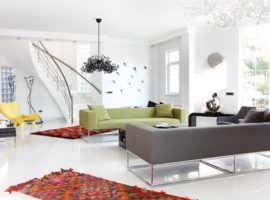These rugs are specifically popular with the designers for their simple yet amazing designs. With their all natural weave and burst of colours, you can use these rugs anywhere in your home, and they are sure to add to the interior decoration. However, a layman may get confused about which rug is which and may not be able to tell one from another. If you are looking for a new rug for your home, then this guide will help you in identifying amongst these four types of rug that are commonly available in the market.
- Kilim
[Image: Risa Boyer Architecture]
These rugs are made of flat weave pattern that have been woven by hand on the looms. They feature all the natural colours and geometric patterns, which form the core design of this rug. These textiles have warm hues and mainly produced in Turkey. However, these days they are being created from Balkans to Pakistan.
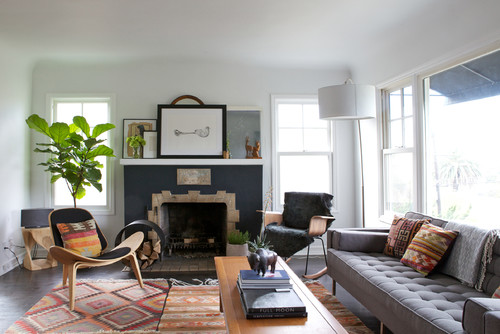
[Image: Natalie Myers]
One can easily tell the difference between Persian rugs and Kilims because of its flat weave pattern. Because of its no-pile design, they can be a perfect fit for the high traffic areas in your house like family room or the dining room. They can sustain extensive footfall without losing its sheen or beauty.
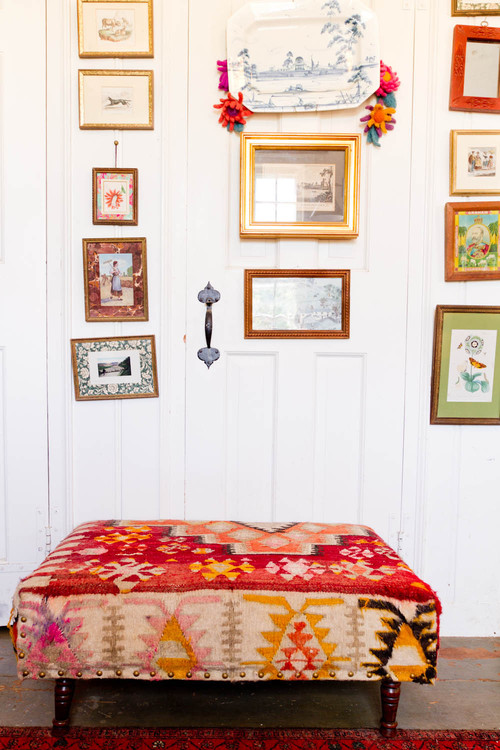
[Image: Rikki Snyder]
The Kilim rugs that have been damaged or torn at some places can also be repurposed cushion covers, pillow covers or upholstery. They can be used for many other things around the house if you can think of a creative application.
- Flokati
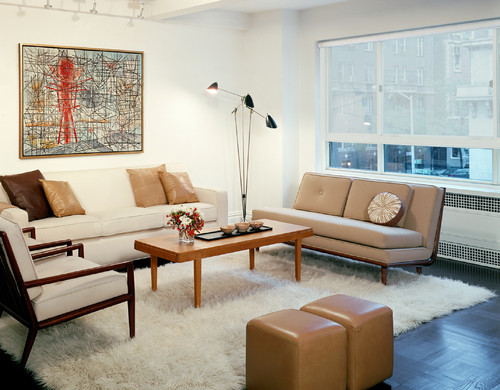
[Image: Specht Harpman Architects]
A genuine Flokati rug is made by using pure wool, which also includes the backing of the rug. It is mainly produced in Greece using the hand weaving technique. Flokati rugs have a shaggy pile on their surface and are of the natural off-white colour of the sheep whose wool has been used to create these rugs.
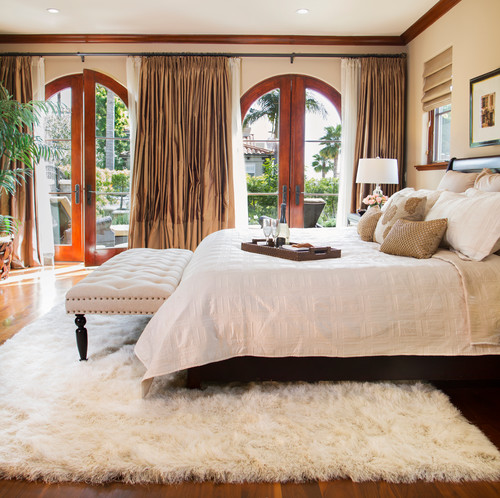
[Image: About Space, LLC]
As of today, these rugs are also being dyed into another shades or hues so that there are more varieties and options for the customers. Some companies also replicate the design of Flokati rug by using synthetic materials. They have an ultra plush appearance and are ideal as the bedroom decor ideas.
- Beni Ourain
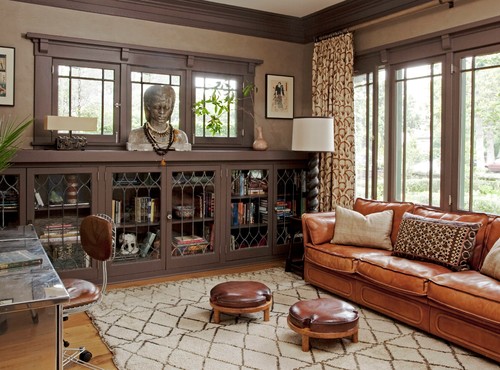
[Image: digsbykatie.com]
A genuine Beni Ourain comes from the mountains of Morocco and is hand woven by the Beni Ourain people residing in those areas. These carpets look extremely classy with their plush design and deep pile that makes them comfortable and soft for the feet. Their core design principle is to use geometric patterns or abstract designs in a natural brown hue over a greyish background. Each and every rug that has been handmade has a unique pattern and will have slight difference in shape and coloration which distinguishes one design from another.
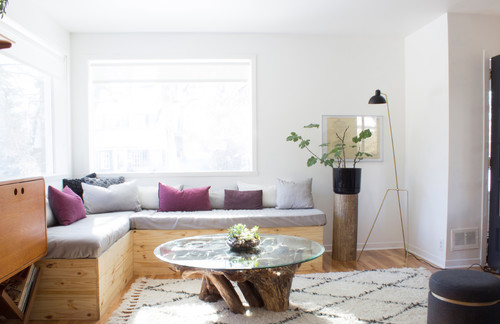
[Image: Le Michelle Nguyen]
Over the years, these carpets have gained enough popularity to be sold via mass retailers in home décor stores. Mostly they are made of wool as the base material while some may also use synthetic materials for the creation of these carpets.
- Boucherouite
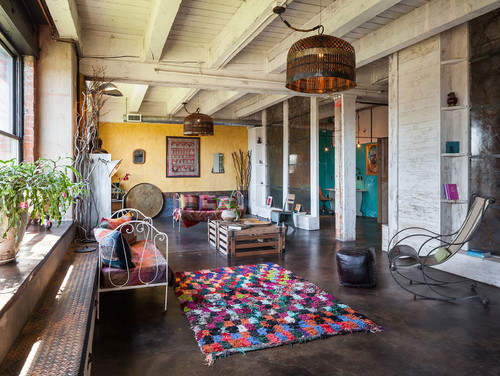
[Image: KuDa Photography]
Boucherouite rug is known to be a sister of Beni Ourain rug and is made by hand by the Berber people located in North Africa. These rugs are made by weaving coloured scraps of wool and fabric together by hand, which gives it its quintessential rug rag image.
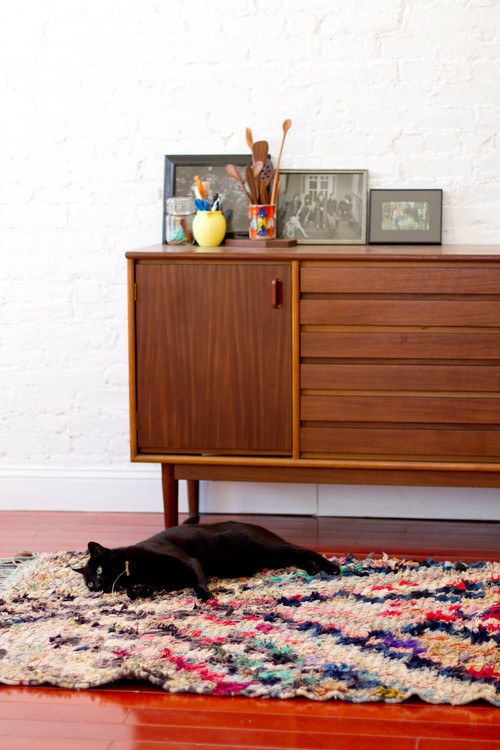
[Image: Rikki Snyder]
Boucherouite rugs are so rich in colour and pattern that with their simple presence, they are able to bring an entire room to life. They can make huge impacts even in a big room. This is one of the amazing living room decor ideas.
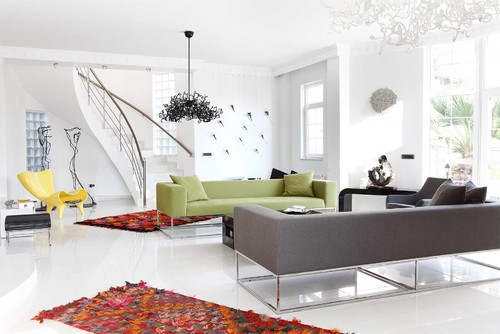
[Image: Kadir Asnaz Photography]
To differentiate between all the varieties, Kilim is a flat weave rug that uses warm natural colours in its design and has predominantly geometric patterns as the core theme. Flokati, on the other hand, has a shaggy pile with pure sheep wool as the surface. They are mostly in natural off-white colour, which is the colour of the sheep. However, they can also be dyed and made from synthetic materials. Beni Ourain comes from Moroccan mountains and is a deep pile wool rug made by hand. It has a geometric design on a grey background with brown natural colours. Boucherouite is made in North Africa by using recycled bits of wool swathes.
These simple definitions will help you choose the perfect fit for your home as per the footfall each room receives. If the budget is no constraint, then you can buy the original variety or you can also choose the synthetic version, which is less pricey, but just as attractive.


